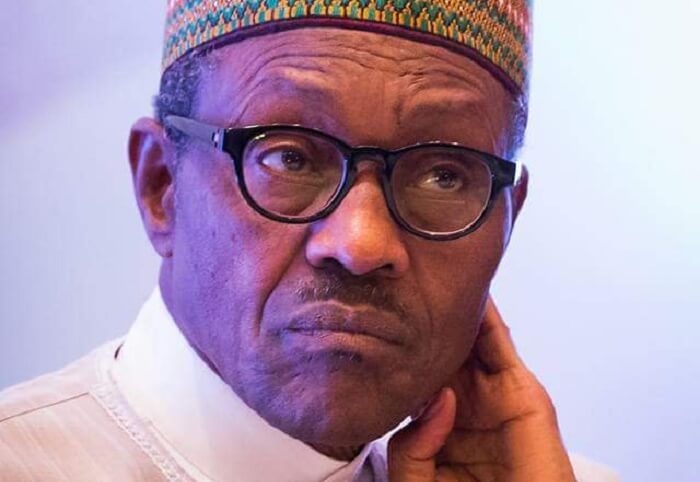 President Muhammadu Buhari[/caption]
President Muhammadu Buhari[/caption]
An American based news network, CNBC, has described the nation’s economy to be as sick as “it’s missing and ailing leader”.
In an article titled “Hit by soft oil prices, rudderless Nigeria struggles with a leadership crisis and recession,” and published on its website, the news network noted that the economy was stricken due to the poor health of President Muhammadu Buhari.
CNBC, in the article, listed reasons for the economic crisis to include the lack of steady leadership, a debilitating currency shortage, falling oil prices, amongst others.
Advertisement
Read the full article below:
“Who’s running Nigeria?” blared a headline in this week’s The Economist, aptly summarizing the state of affairs in beleaguered Nigeria — a major oil producer and African economic powerhouse whose economy appears to be as stricken as its ailing leader.
With Nigerian President Muhammadu Buhari in absentia suffering from an undisclosed illness, the country’s National Bureau of Statistics reported this week that the economy contracted 1.5 percent last year for the first time in nearly 25 years. Although Vice President Yemi Osinbajo is handling day-to-day management of the country, analysts say Nigeria’s mounting woes require steady leadership.
Like most OPEC member states, the former emerging market standout has found itself on the wrong side of oil prices that remain far too low to bolster an economy heavily reliant upon crude production.
Advertisement
The troubles of Africa’s largest economy have been exacerbated by a debilitating currency shortage. The International Monetary Fund forecasts Nigeria will only see “modest growth” of less than 1 percent this year, and inflation is running in the double digits. It all suggests relief for the beleaguered country appears far off.
“Shortage of foreign exchange is very severe,” explained Win Thin, global head of emerging market currency research at Brown Brothers Harriman. “Foreign investors today face very long delays in repatriating funds out of Nigeria.”
The shortages were first caused by lower oil prices, but policymakers ultimately made the situation worse by pegging the Nigerian naira [its official currency] at a rate analysts say was overvalued. “As such, markets are not clearing and there are shortages of FX,” he added.
Meanwhile, the scarcity and overinflated value of Nigeria’s currency is creating liquidity pressures in the financial system. Recently, the Central Bank of Nigeria took measures to ease the situation.
Oil, which has frequently rescued Nigeria from economic decline and provided a buffer in tough times, may not be enough to salvage the country’s economy this time. Brent crude has traded around $55 — a far cry from levels above $100 that once kept OPEC members flush with revenue.
Advertisement
Nigeria, which produces 1.8 million barrels a day of crude, was excluded from a recent deal between cartel members that restricts output in order to boost sagging oil prices. Analysts don’t see that exemption helping in the near term.
“Exhibiting ‘Dutch disease’ type symptoms, Nigeria’s economy has been buoyed by oil-related inflows during the oil price boom,” Phyllis Papadavid, an analyst with the Overseas Development Institute, wrote in a recent report.
“Subsequent naira strength has coincided with a stagnant non-oil sector, which has been at the expense of a largely undiversified manufacturing sector. Looking ahead, CBN naira support at the current rate is consistent with overvaluation,” she said, adding that Nigeria needs to diversify its economy and allow its currency to float freely.
“I think Nigeria can manage with oil around $50-55, but the key is getting actual output up to capacity,” said BBH’s Thin, adding that Nigeria may need to act on stabilizing its currency before seeing any relief.
“The situation is unsustainable, in my view, and Nigeria will likely eventually float the naira,” said Thin. “Egypt faced a similar situation last year and eventually floated its official currency, the Egyptian pound.”
The new central bank policy should help increase availability of FX on the retail side of the market; it remains to be seen to what extent this will ease the backlog.
Advertisement
“The authorities do not seem keen to bite the bullet and let the naira find its own level as driven by market forces, and we see this continuing to put a damper on [foreign investment] and inward portfolio flows,” said Frank Kahumba, a Johannesburg-based senior analyst with Momentum SP Reid Securities, in a research note last month.


